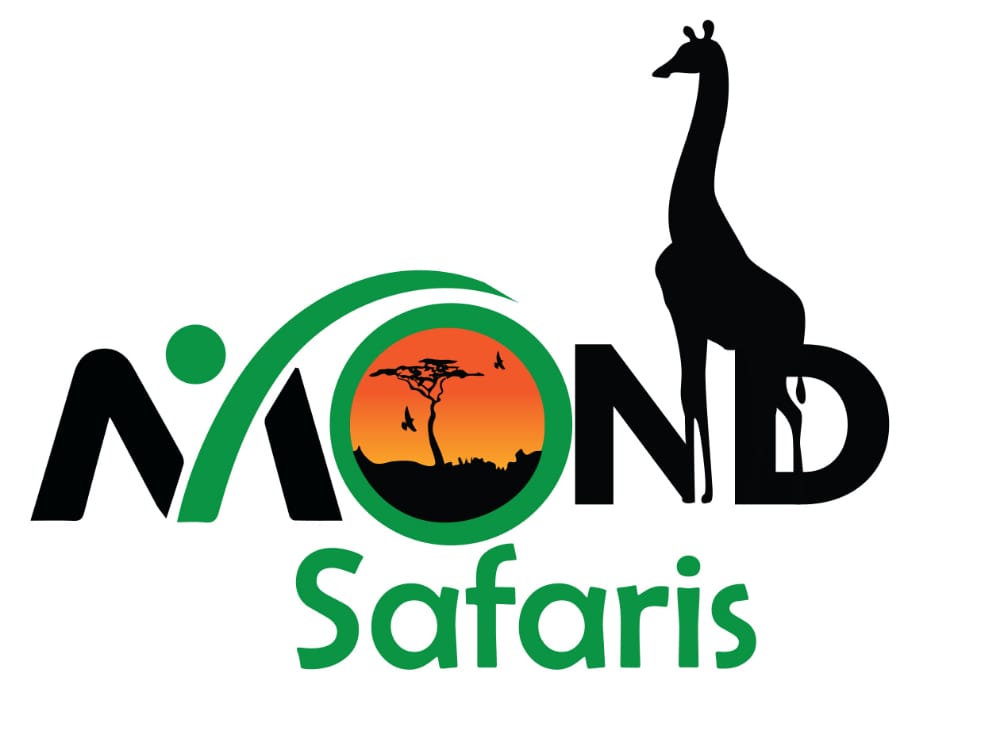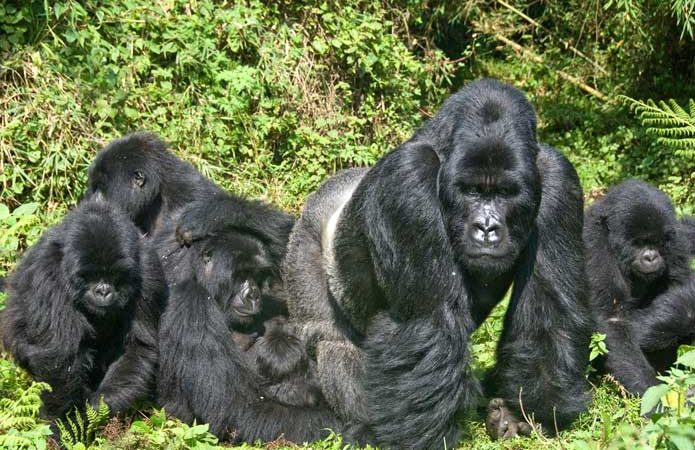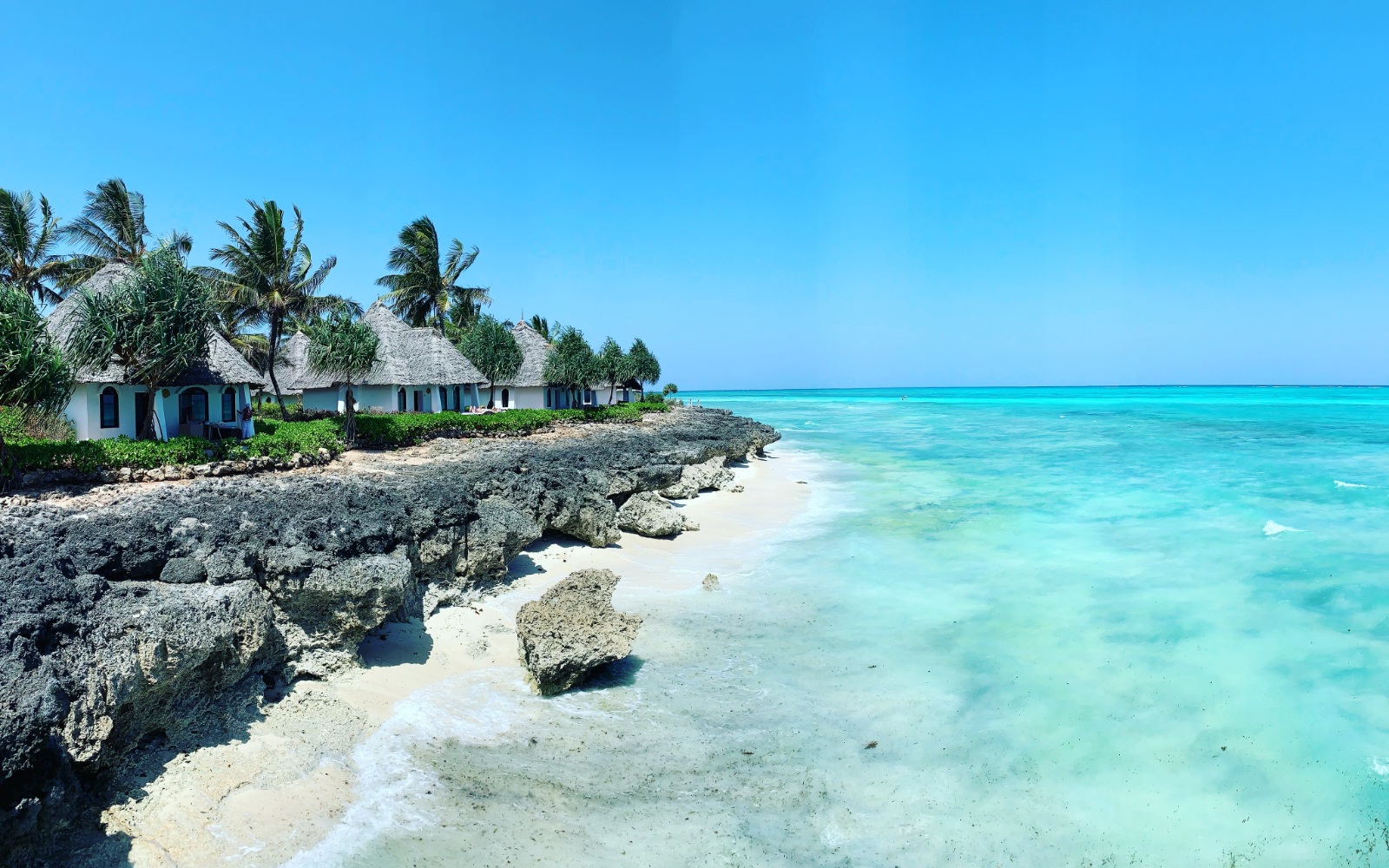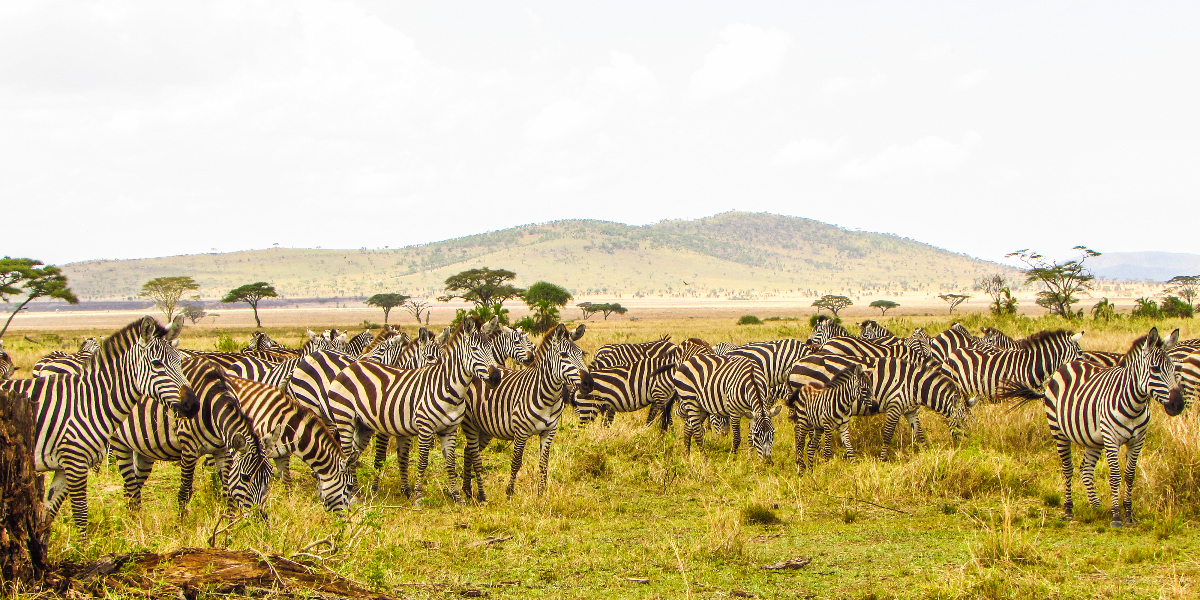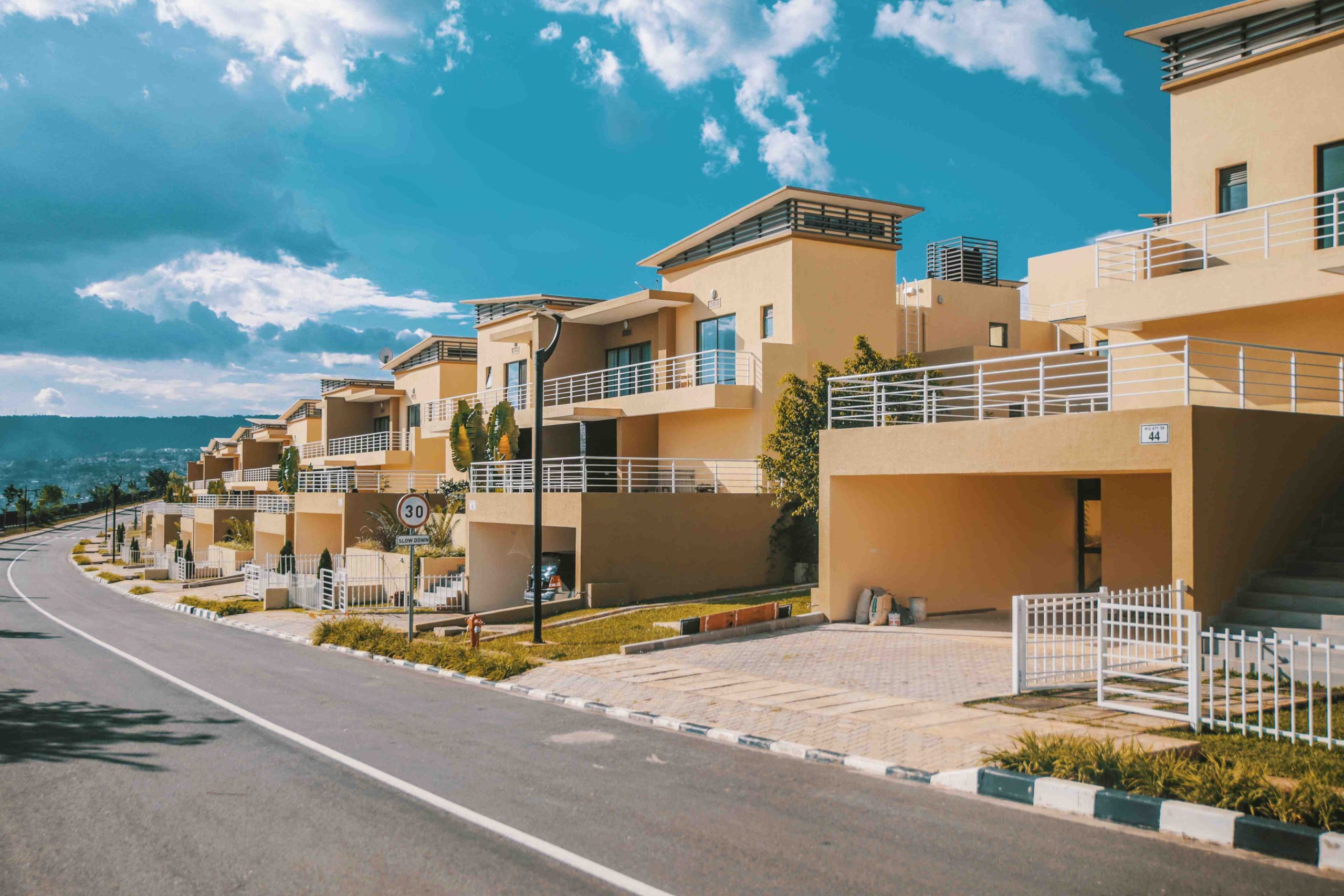Embark on an African adventure like never before as we unveil the top 7 best…
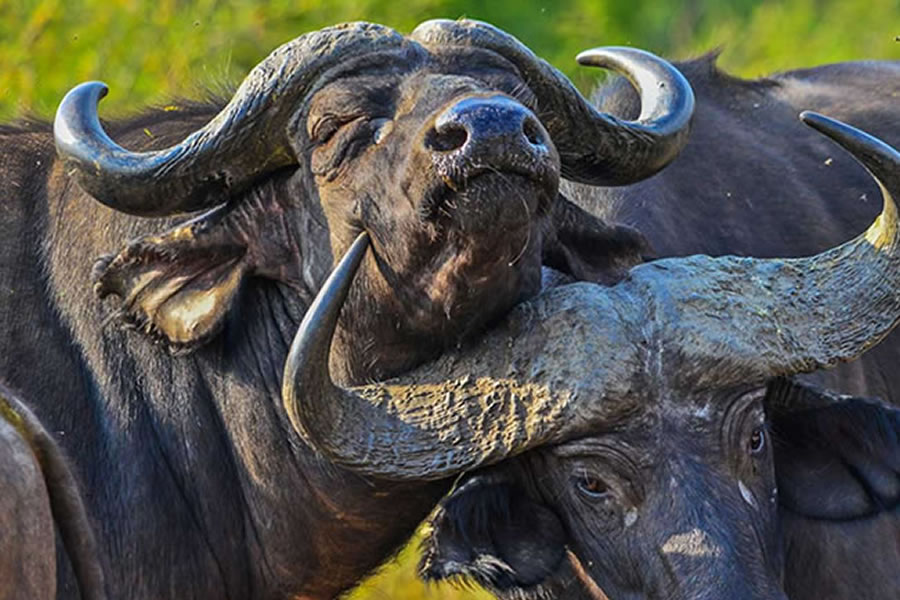
African Safaris
African Safaris | African Tours | African Adventures
Introduction to African Safaris
An African safari is a unique and unforgettable experience that offers travelers the opportunity to witness some of the most incredible wildlife on the planet. With vast savannas, towering mountains, and dense forests, Africa is home to an impressive array of animals and landscapes that can be explored through a variety of safari options.
Safaris in Africa typically involve guided tours through national parks and game reserves, led by experienced rangers and trackers who know the area intimately. The tours can be conducted on foot, by vehicle, or even on horseback, and they provide an immersive experience that allows travelers to get up close and personal with the continent’s iconic wildlife.
One of the most popular safari destinations in Africa is Kenya, where visitors can explore the sprawling plains of the Maasai Mara and spot the Big Five game animals: lions, elephants, leopards, rhinos, and buffalo. Tanzania is another favorite safari destination, known for the Serengeti National Park and the Ngorongoro Crater, which offer stunning views of wildebeest migrations and the largest concentration of predators in Africa.
South Africa is also a top safari destination, home to Kruger National Park, one of the largest game reserves in Africa, and a variety of private game reserves. Botswana is renowned for its wetlands, where visitors can witness elephants and hippos grazing in the water, while Zambia’s South Luangwa National Park is home to an incredible diversity of wildlife, including leopards, wild dogs, and giraffes.
No matter which destination you choose, an African safari promises to be an unforgettable adventure that provides an unparalleled opportunity to experience the beauty and diversity of the African continent.
Top African Safari Destinations
Africa is home to some of the world’s most magnificent wildlife and landscapes, making it an ideal destination for safari enthusiasts. From the vast plains of the Serengeti to the lush forests of Rwanda, here are some of the top African safari destinations to explore:
1. Bwindi Impenetrable Forest, Uganda
Bwindi Impenetrable Forest is a prime destination for gorilla trekking in Africa. The forest is home to around half of the world’s mountain gorillas, making it an essential destination for wildlife enthusiasts. Visitors can hike through the dense forest to see these majestic primates up close.
2. Serengeti National Park, Tanzania
Serengeti National Park is one of Africa’s most popular safari destinations, famous for its vast plains and abundance of wildlife. Visitors can witness the great migration of wildebeest, zebras, and gazelles as they make their way across the Serengeti, attracting predators such as lions, leopards, and cheetahs. The park is also home to elephants, giraffes, hyenas, and more.
3. Maasai Mara National Reserve, Kenya
Located in southwestern Kenya, the Maasai Mara National Reserve is another great destination for wildlife enthusiasts. The reserve is famous for its annual wildebeest migration and is home to an abundance of lions, cheetahs, leopards, and other predators. Visitors can also spot elephants, hippos, zebras, and other wildlife while on safari.
4. Kruger National Park, South Africa
Kruger National Park is one of South Africa’s top safari destinations, offering visitors the chance to see the “Big Five” (lions, leopards, elephants, buffalos, and rhinos) along with a range of other wildlife. The park covers an area of 19,485 square kilometers and is home to over 500 bird species.
5. Okavango Delta, Botswana
The Okavango Delta in Botswana is a unique safari destination, featuring a vast network of waterways and lagoons that attract a range of wildlife. Visitors can go on boat safaris, mokoro (traditional canoe) trips, and walking safaris to see elephants, hippos, crocodiles, and a range of bird species.
6. Ngorongoro Conservation Area, Tanzania
The Ngorongoro Conservation Area is another great safari destination in Tanzania, featuring a vast crater that is home to a diverse range of wildlife. Visitors can see elephants, lions, rhinos, and more on game drives, and can also explore the Maasai culture and way of life.
7. Volcanoes National Park, Rwanda
Volcanoes National Park is one of the best places in the world to see mountain gorillas in their natural habitat. Located in the Virunga Mountains, the Volcanoes National Park in Rwanda is the most popular destination for gorilla trekking, attracting thousands of tourists from all over the world every year.
Overall, Africa is a treasure trove of wildlife and natural wonders, offering unforgettable experiences for safari enthusiasts.
Types of African Safaris
African safaris are a popular way to experience the incredible wildlife and breathtaking landscapes of the African continent. There are many types of African safaris to choose from, each offering a unique experience for travelers. Here are some of the most popular types of African safaris:
Game Drives: Game drives are the most popular type of safari, and involve exploring the African wilderness in a 4×4 vehicle with an experienced guide. This is an excellent way to see a wide range of wildlife, from large predators such as lions and leopards to herds of grazing herbivores like giraffes and zebras.
Walking Safaris: For a more up-close and personal experience with nature, walking safaris are an excellent choice. Accompanied by an experienced guide, you can explore the wilderness on foot and experience the sounds, smells and textures of the African bush.
Bird Watching Safaris: Africa is home to a vast array of bird species, and bird watching safaris are a great way to discover them. Accompanied by an expert birding guide, you can explore the African wilderness and spot a wide variety of colorful and unique bird species.
Photographic Safaris: For those who love photography, a photographic safari is the perfect choice. Accompanied by a professional photographer, you can capture stunning images of African wildlife, landscapes, and cultures.
Cultural Safaris: While wildlife is a highlight of any African safari, cultural safaris allow travelers to experience the rich diversity of African cultures. Accompanied by local guides, you can explore traditional villages, learn about local customs and traditions, and experience traditional music and dance performances.
Horseback Safaris: For a unique way to experience the African wilderness, horseback safaris are an excellent choice. Accompanied by an experienced guide, you can explore the bush on horseback and get up close to the wildlife in a way that is not possible from a vehicle.
Hot Air Balloon Safaris: For a truly unforgettable experience, hot air balloon safaris offer a breathtaking perspective on the African wilderness. Drifting silently over the savannah, you can watch the sun rise over the horizon and witness the wildlife below in their natural habitat.
Gorilla trekking safaris: Gorilla trekking safaris are a popular activity for travelers who want to experience the awe-inspiring beauty and natural wonder of the mountain gorillas in their natural habitat. These safaris typically take place in the lush rainforests of East and Central Africa, specifically in the countries of Rwanda, Uganda, and the Democratic Republic of Congo (DRC).
The gorilla trekking experience involves a hike through the dense forests, led by experienced guides who are familiar with the gorillas’ habitat and behavior. The trek can be quite strenuous, as it often involves traversing rugged terrain and steep hills, but the reward of coming face-to-face with these magnificent creatures is well worth the effort.
Once the gorillas are located, visitors are able to observe them up close and personal, typically for a period of one hour. The gorillas are accustomed to human presence, but visitors are required to keep a respectful distance and follow the instructions of their guide to ensure the safety of both the visitors and the gorillas.
Gorilla trekking safaris are generally organized by licensed tour operators like mond safaris company, and permits are required to visit the gorillas. In some cases, permits may need to be booked several months in advance, as the number of daily visitors to the gorillas is limited in order to reduce the impact of human presence on their habitat.
Gorilla trekking safaris provide a unique opportunity to connect with nature and witness some of the most fascinating creatures on the planet. In addition to seeing the gorillas, visitors may also have the opportunity to spot other wildlife and explore the stunning natural beauty of the region.
However, it is important to note that gorilla trekking can be a sensitive issue, as the gorillas are endangered and their habitat is under threat from human activity. It is important to choose a responsible tour operator like mond safaris company that follows ethical guidelines and prioritizes the welfare of the gorillas and their habitat.
In conclusion, African safaris offer a wide range of experiences for travelers, and there is something to suit every taste and interest. Whether you prefer the thrill of a game drive, the tranquility of a walking safari, or the adventure of a hot air balloon ride, an African safari is a once-in-a-lifetime experience that should not be missed.
Planning Your African Safari
Planning an African safari can be an exciting and challenging experience. Africa is a vast continent with a diverse range of cultures, landscapes, and wildlife, and there are many factors to consider when planning a trip. Here are some tips to help you plan your African safari:
Choose your destination: Africa has many safari destinations, each with its own unique attractions. Some popular safari destinations include Ugand, Kenya, Tanzania, Rwanda, South Africa, Botswana, Zimbabwe, and Namibia. Research each destination and choose the one that best fits your interests and budget.
Determine the best time to go: The best time to go on safari varies depending on the country and the type of wildlife you want to see. For example, the best time to see the wildebeest migration in Kenya and Tanzania is from July to October, while the best time to see the Victoria Falls in Zimbabwe is from February to May. Consult a travel guide or a tour operator to determine the best time to visit your chosen destination.
Choose your accommodations: There are many types of accommodations available for safari-goers, from luxurious lodges to budget campsites. Consider your budget and your comfort level when choosing your accommodations. Also, consider the proximity of the accommodations to the wildlife viewing areas.
Determine your budget: African safaris can be expensive, so it’s important to determine your budget before planning your trip. Consider the cost of transportation, accommodations, meals, park fees, and any additional activities you want to do, such as hot air balloon rides or guided nature walks.
Decide on your mode of transportation: Safari-goers have several options for transportation, including guided tours, self-drive safaris, and fly-in safaris. Consider your level of experience and comfort with driving in unfamiliar terrain, as well as the cost of transportation.
Plan your activities: African safaris offer a range of activities, including game drives, nature walks, bird watching, and cultural experiences. Research the activities available at your destination and choose the ones that best fit your interests.
Prepare for your trip: Make sure you have all the necessary documents for travel, including a passport and any required visas. Also, make sure you have the appropriate clothing and gear for your safari, including comfortable and sturdy shoes, sunscreen, and insect repellent.
In conclusion, planning an African safari can be a complex and rewarding experience. By following these tips, you can ensure that your trip is safe, enjoyable, and unforgettable.
The Best Time to Go on an African Safari
The best time to go on an African safari can vary depending on your personal preferences and the specific region you plan to visit. Africa is a vast and diverse continent with a range of climates, landscapes, and wildlife, so it’s important to consider a few factors before planning your safari.
One of the most important factors to consider when planning your safari is the weather. The best time to go on safari is typically during the dry season, which varies depending on the region. In East Africa, for example, the dry season is generally from June to October, while in Southern Africa, it’s from May to October. During the dry season, the weather is generally warm and dry, which means that wildlife is more concentrated around water sources, making it easier to spot them.
Another important factor to consider is the type of wildlife you want to see. Different seasons offer different opportunities to see various animals. For example, the dry season is the best time to see elephants, as they tend to congregate around water sources. However, the wet season can be a great time to see newborn animals, such as baby zebras and wildebeest, as well as migratory birds.
It’s also important to consider the crowds when planning your safari. Peak season can be quite busy, and prices are often higher during this time. If you prefer a quieter experience, consider traveling during the shoulder season, which is generally a few weeks before or after the peak season.
In general, the best time to go on an African safari depends on your priorities and preferences. Do you want to see specific animals? Do you want to avoid the crowds? Consider these factors when planning your trip, and you’ll have a better chance of experiencing the safari of your dreams.
Wildlife and Game Viewing on an African Safari
An African safari is an experience like no other, offering a unique opportunity to witness the beauty and diversity of wildlife in their natural habitats. Africa is home to an abundance of wildlife species, including the famous Big Five: lion, elephant, buffalo, leopard, and rhinoceros. Game viewing on an African safari is an unforgettable adventure, allowing visitors to witness the majesty of these animals up close and personal.
The African continent offers a wide range of wildlife habitats, from savannas and grasslands to deserts, rainforests, and mountains. This means that there is a rich variety of species to see, depending on the region and time of year. Some of the most popular destinations for game viewing include the Masai Mara in Kenya, the Serengeti in Tanzania, Kruger National Park in South Africa, and Chobe National Park in Botswana.
Game drives are the most common way to view wildlife on safari, with visitors usually taking a guided tour in a 4×4 vehicle. The vehicles are specially designed for game viewing, with elevated seats and an open-top roof for optimal viewing. Guides are knowledgeable about the local wildlife and can help visitors spot animals that may be hidden in the vegetation or difficult to see.
In addition to game drives, there are other ways to view wildlife on safari. Walking safaris allow visitors to experience the African wilderness up close and personal, with trained guides leading the way. Hot air balloon safaris provide a unique perspective from above, offering a bird’s eye view of the landscape and wildlife below.
Wildlife viewing is not limited to the Big Five, as there are thousands of other species to see on safari. Some of the most popular include giraffes, zebras, cheetahs, hyenas, hippos, crocodiles, and a variety of antelope species. Bird watching is also a popular activity, with over 1,000 bird species found in Africa.
While the focus of an African safari is on wildlife, it’s important to remember that these animals are wild and unpredictable. Visitors should always follow the guidance of their guides and never approach animals too closely or disturb them in any way. Respecting the natural environment and its inhabitants is essential for preserving the beauty and diversity of African wildlife for future generations to enjoy.
In conclusion, an African safari is an extraordinary adventure that offers a chance to see some of the world’s most amazing creatures in their natural habitats. With a variety of wildlife species and stunning landscapes, game viewing on safari is an experience that visitors will never forget.
Cultural Experiences on an African Safari
An African safari is an incredible opportunity to experience some of the world’s most unique and diverse cultures. As you explore the wild landscapes of Africa, you will encounter a rich tapestry of traditions, beliefs, and practices that reflect the cultural heritage of the continent.
Here are some of the cultural experiences you can look forward to on an African safari:
Meeting local tribes: Throughout Africa, there are many indigenous tribes who have lived on the land for centuries. Many of these tribes have preserved their unique customs, including traditional dress, music, dance, and food. On a safari, you may have the opportunity to visit a village and meet members of a local tribe. You can learn about their way of life and gain insight into their history and culture.
Learning about traditional medicine: Traditional medicine is an important part of many African cultures. Local healers often use natural remedies and plant-based medicines to treat common ailments. During a safari, you may have the opportunity to visit a traditional healer and learn about their methods and beliefs.
Sampling local cuisine: African cuisine is incredibly diverse, with different regions and cultures having their own unique dishes and flavors. On a safari, you may have the opportunity to try traditional dishes such as bobotie (a South African meat dish), injera (a type of Ethiopian flatbread), or jollof rice (a West African rice dish). You may also have the chance to sample local fruits and vegetables, as well as traditional beverages such as palm wine.
Attending cultural festivals: Throughout the year, various African communities hold cultural festivals and events that celebrate their heritage. These festivals often feature music, dance, art, and traditional dress. Some of the most famous festivals include the Mombasa Carnival in Kenya, the Fes Festival of World Sacred Music in Morocco, and the Durbar Festival in Nigeria.
Visiting historical sites: Africa is home to many historic sites that offer insight into the continent’s rich cultural heritage. Some of the most famous include the Great Mosque of Djenné in Mali, the Pyramids of Giza in Egypt, and the Apartheid Museum in South Africa. A safari may offer the opportunity to visit these sites and learn about the history and culture of the region.
In conclusion, an African safari offers a rich array of cultural experiences that are sure to leave a lasting impression. From meeting local tribes and sampling traditional cuisine to attending festivals and visiting historic sites, a safari is the perfect opportunity to immerse yourself in the diverse cultures of Africa.
Accommodations on an African Safari
Accommodations on an African safari can vary depending on the type of safari experience you choose. From luxury lodges and tented camps to budget-friendly options like camping, there are many choices available for all types of travelers.
Luxury lodges and tented camps are typically the most comfortable and luxurious options for accommodations on an African safari. These lodges and camps are designed to offer guests a high level of comfort and are often located in prime wildlife viewing areas. They usually have private rooms or tents with en-suite bathrooms, hot showers, and comfortable beds. Some of the more upscale lodges may even have amenities like swimming pools, spas, and gourmet restaurants.
For those who prefer a more immersive experience in the African wilderness, a mobile safari may be the perfect option. On a mobile safari, travelers move from camp to camp, following the migration patterns of the animals. Accommodations on a mobile safari are typically tented camps that are set up in remote areas of the wilderness. These camps are basic but comfortable and provide a truly authentic safari experience.
For budget-conscious travelers, camping is a popular option for accommodations on an African safari. Camping sites can range from basic sites with no facilities to fully equipped campsites with showers and cooking facilities. Some campsites also offer the option of hiring a cook or a guide to help with the safari experience.
Regardless of the type of accommodations you choose, it is important to remember that you are in the African wilderness and you should always be aware of your surroundings. Most lodges and camps have trained staff who can offer advice and assistance with wildlife encounters, but it is always best to exercise caution and follow the rules and guidelines set by your hosts.
Overall, accommodations on an African safari can be as luxurious or as basic as you desire. From luxury lodges and tented camps to camping sites in the wilderness, there is an accommodation option to suit every type of traveler and budget.
Safety Considerations for an African Safari
An African safari is a thrilling and unforgettable experience that can be enjoyed by people of all ages and backgrounds. However, with any adventure in the wild, safety must always be a top priority. The following are some key safety considerations to keep in mind when planning an African safari:
Choose a reputable safari operator: Make sure to do your research and select a safari operator with a good reputation and a strong focus on safety. Check online reviews and ask for recommendations from friends or travel agents.
Follow the rules and instructions of your guide: Your safari guide will be your primary source of safety information and guidance. Listen carefully to their instructions and follow their advice, especially when it comes to staying in the vehicle or avoiding certain animals.
Stay in your vehicle: Animals on an African safari are wild and unpredictable, so it’s important to stay inside your vehicle at all times, unless directed by your guide. Vehicles provide a safe barrier between you and potentially dangerous animals.
Be aware of your surroundings: Even when you’re inside your vehicle, keep an eye out for any potential dangers. Be aware of animals in the area, and keep an eye out for any warning signs or sounds that might indicate danger.
Dress appropriately: Wear light-colored, long-sleeved clothing to protect against the sun and insect bites. Avoid bright colors, as they may attract unwanted attention from animals.
Bring the right gear: Make sure to bring any necessary medication or equipment, such as sunscreen, insect repellent, and a hat. Also, be sure to pack a first aid kit in case of emergencies.
Get vaccinated and take medication: Depending on the location of your safari, you may need to get vaccinated or take medication to protect against diseases such as malaria. Consult with your doctor or a travel health clinic for advice.
Respect the animals: Remember that you are a guest in the animals’ habitat, and always treat them with respect. Avoid disturbing them, and never feed or touch them.
By following these safety considerations, you can enjoy an incredible African safari experience while minimizing risks and ensuring the safety of yourself and those around you.
Food and Drink on an African Safari
Food and drink are an important aspect of any travel experience, including an African safari. While on safari, you’ll likely be spending a lot of time outdoors and on the move, so it’s important to stay properly fueled and hydrated. Here are some things to keep in mind when it comes to food and drink on an African safari:
Check with your safari operator: Before departing on your safari, check with your safari operator to see what food and drink options are available. Some operators may provide all meals and drinks, while others may require you to bring your own.
Bring snacks: Even if your safari operator provides meals, it’s always a good idea to bring some snacks with you, such as trail mix, energy bars, or fruit. These can come in handy during long drives or when you’re feeling a bit hungry between meals.
Stay hydrated: Staying hydrated is key during an African safari, especially in hot and dry conditions. Make sure to drink plenty of water throughout the day, and bring a refillable water bottle with you.
Be aware of food allergies or dietary restrictions: If you have any food allergies or dietary restrictions, make sure to communicate these to your safari operator ahead of time. They may be able to accommodate your needs, or you may need to bring your own food.
Try local cuisine: Many African countries have a rich and diverse culinary tradition, so be sure to try some of the local cuisine during your safari. This can be a great way to experience the local culture and cuisine.
Pack food and drink in airtight containers: To avoid attracting animals, pack your food and drink in airtight containers and keep them in a secure location when not in use.
Avoid tap water: In many African countries, tap water is not safe to drink. Stick to bottled water or purified water to stay hydrated.
By keeping these food and drink considerations in mind, you can stay properly fueled and hydrated during your African safari, while also enjoying the local cuisine and culture.
Photography on an African Safaris
Photography on an African safari can be a truly incredible experience, with opportunities to capture stunning wildlife, beautiful landscapes, and unique cultural elements. The continent of Africa is home to a wide variety of incredible creatures, from majestic elephants and powerful lions to graceful gazelles and fascinating insects. The landscapes are equally diverse, ranging from vast savannas and rugged mountains to lush rainforests and sparkling lakes.
When preparing for a photography safari in Africa, it’s important to have the right equipment. A good camera with a high-quality lens is essential, as well as a tripod and other accessories like filters, spare batteries, and memory cards. It’s also a good idea to bring a zoom lens with a long focal length to capture wildlife from a distance, as getting too close to wild animals can be dangerous.
When it comes to photographing wildlife, patience and timing are key. Safari guides and trackers can be incredibly helpful in locating animals, but it’s up to the photographer to choose the right moment to take the shot. It’s important to remain respectful of the animals and their natural behavior, and not to disturb or interfere with them in any way. Capturing images of wild animals in their natural habitat can be a truly thrilling experience, and the results can be truly stunning.
In addition to wildlife photography, African safaris also offer ample opportunities to capture unique cultural elements, such as traditional clothing, dances, and ceremonies. These can provide a fascinating contrast to the natural world and can be a great way to capture the diversity of African life.
When traveling on an African safari, it’s important to be mindful of the environment and the impact of tourism. Many safari operators are committed to eco-tourism and sustainable practices, which can help to preserve the natural habitats and support local communities. As a photographer, it’s important to be respectful of the environment and the people who live there, and to use your images to promote conservation and awareness.
Overall, photography on an African safari can be a truly unforgettable experience, offering incredible opportunities to capture the beauty and diversity of one of the world’s most fascinating continents. With the right equipment, preparation, and mindset, a safari photographer can come away with stunning images that tell a powerful story of the natural world and the people who call it home.
Here are the top five places to visit in Uganda on an African safari
Uganda is a beautiful country located in East Africa, known for its diverse wildlife, stunning natural scenery, and friendly people. If you are planning an African safari, Uganda is an excellent destination to consider. Here are the top five places to visit in Uganda on an African safari:
1. Bwindi Impenetrable Forest: This UNESCO World Heritage site is home to over half of the world’s mountain gorilla population, making it one of the best places in the world for gorilla trekking. Visitors can hike through the dense forest to observe these majestic creatures in their natural habitat.
2. Murchison Falls National Park: Located in the northern part of the country, Murchison Falls National Park is Uganda’s largest and oldest park. It is home to a wide range of wildlife, including elephants, lions, leopards, giraffes, and buffaloes. The highlight of the park is the Murchison Falls, where the Nile River is forced through a narrow gap in the rocks, creating a spectacular waterfall.
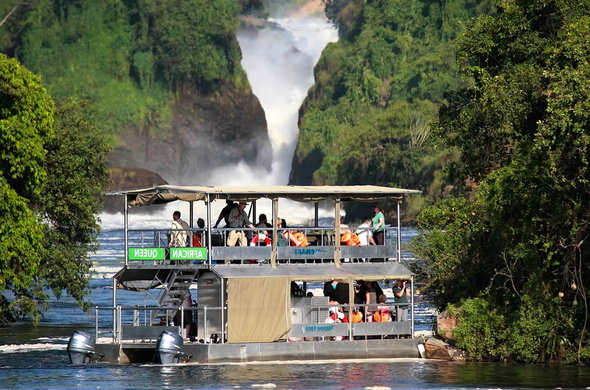
3. Queen Elizabeth National Park: This park is located in western Uganda and is known for its incredible biodiversity. Visitors can take a boat safari along the Kazinga Channel to observe hippos, crocodiles, and a variety of bird species. The park is also home to tree-climbing lions, which can be seen lounging in the branches of fig trees.

4. Kibale National Park: This park is home to a large population of chimpanzees, making it one of the best places in the world for chimpanzee trekking. Visitors can also explore the park’s lush forests and observe other wildlife such as baboons, red colobus monkeys, and bushbucks.

5. Lake Mburo National Park: This park is located in southern Uganda and is known for its scenic landscape and abundant wildlife. Visitors can take a game drive through the park to observe zebras, impalas, buffaloes, and other animals. The park is also home to several lakes, which offer opportunities for boat safaris and bird watching.
Overall, Uganda offers a unique and unforgettable African safari ex
patience with its stunning natural scenery and diverse wildlife. These top five places are just a few of the many attractions that Uganda has to offer.
Conclusion: Why an African Safari is a Must-Do Experience
An African Safari is a must-do experience for any adventurer looking to explore the beauty and diversity of the continent. With its stunning landscapes, rich wildlife, and unique cultures, Africa offers an unforgettable experience that will leave you with memories that will last a lifetime.
1. One of the main reasons why an African Safari is a must-do experience is the opportunity to see some of the world’s most magnificent animals in their natural habitat. From the majestic elephants and rhinos to the powerful lions and cheetahs, Africa’s wildlife is truly unparalleled. The continent is home to over 1,100 species of mammals, and more than 2,600 species of birds, making it a paradise for nature lovers and wildlife enthusiasts.
2. Aside from the wildlife, an African Safari is a unique opportunity to immerse yourself in the local culture and interact with the people of the continent. Africa is a diverse continent with over 1,500 languages spoken, and each culture has its own traditions and customs. A safari can allow you to learn about these cultures and their ways of life while also providing an opportunity to give back to the local communities through responsible tourism.
3. Another reason why an African Safari is a must-do experience is the chance to disconnect from the hustle and bustle of modern life and enjoy the peace and tranquility of nature. With its vast plains, lush forests, and pristine beaches, Africa offers a perfect escape from the stress of everyday life.
4. Finally, an African Safari is an opportunity to create lasting memories and forge bonds with friends and family. The experience of witnessing wildlife in its natural habitat and exploring the continent’s diverse landscapes together is an incredible bonding experience that will stay with you for the rest of your life.
In conclusion, an African Safari is a must-do experience for anyone seeking adventure, cultural immersion, and a chance to disconnect and create lifelong memories. From its rich wildlife and diverse cultures to its stunning landscapes and peaceful surroundings, Africa offers an experience like no other.
frequent questions asked about Africa safaris
Going on an African safari can be an exciting adventure, but it’s also natural to have some questions and concerns about what to expect. Here are some of the most frequently asked questions about Africa safaris:
What is an African safari?
An African safari is a trip to a game reserve or national park in Africa, where visitors can observe and photograph wildlife in their natural habitats. A safari can be a driving tour or a guided walking tour, and it may also include accommodations in lodges, tented camps, or even luxury hotels.
What are the best destinations for an African safaris?
Africa has many great safari destinations, and the best one for you will depend on your interests, budget, and time constraints. Some popular destinations include Kenya, Tanzania, South Africa, Botswana, Namibia, and Zimbabwe.
What animals can you see on an African safaris?
Africa is home to a wide variety of wildlife, including the “Big Five” (lions, elephants, leopards, rhinos, and buffalos), as well as giraffes, zebras, hippos, crocodiles, hyenas, cheetahs, wildebeest, and many others.
What is the best time of year to go on an African safaris?
The best time to go on an African safari depends on the specific destination and the types of animals you want to see. Generally, the dry season (usually from June to October) is the best time to see wildlife, as animals tend to congregate around water sources. However, some parks are best visited during the rainy season (from November to May), as this is when newborn animals are most abundant and the landscape is lush and green.
What should I pack for an African safaris?
Packing for an African safari can depend on the specific destination and time of year, but some essentials include comfortable and lightweight clothing, sturdy shoes, a hat and sunglasses, sunscreen, insect repellent, a camera with extra batteries and memory cards, and any necessary medications.
Is it safe to go on an African safaris?
Safety is always a concern when traveling, but African safaris are generally considered safe as long as visitors take the necessary precautions. It’s important to follow the guidance of your tour guide or safari operator, avoid going off on your own, and be aware of your surroundings at all times. It’s also a good idea to get travel insurance that covers medical emergencies and evacuation.
How much does an African safari cost?
The cost of an African safari can vary widely depending on the destination, type of accommodations, and length of the trip. A budget safari can cost around $200 per person per day, while a luxury safari can cost over $1,000 per person per day. It’s important to do your research and compare prices from different safari operators to find the best deal.
check the link https://mondsafaris.com/safari-blogs/ for all recent blogs or visit our website https://mondsafaris.com/ for an African safari
